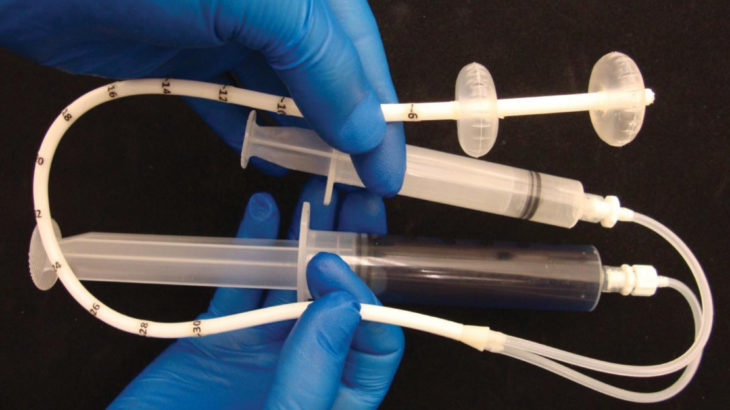After graduating with an MBA from the David Eccles School of Business at the University of Utah, Ryan Murri didn’t get one job offer – he got three. He credits his success to the real-world experience he gained through the Pierre and Claudette Lassonde New Venture Development program.
In the New Venture Development program, which is part of the Pierre Lassonde Entrepreneur Center, graduate students spend an entire school year writing business plans for faculty inventors. In the process, students get an unmatched experience, and some of them follow through on their business plans and become the CEO or chief scientist for the startup companies.
“The New Venture Development program was monumental for me,” Murri said. “When I was interviewing for jobs while wrapping up my MBA, I showed the recruiters the business plan I helped write because I didn’t have a lot of work experience, and they loved it.”
Murri was part of a team called Monitus Medical. His teammates were Nic Anderson, an MBA student and a senior medical technology analyst for Select Health, and Michael Burr, a joint MBA/MS bioengineering student who works for another medical-device startup called iVeena.
Monitus Medical is an early stage startup offering a niche product to detect gastrointestinal leaks and esophageal perforations that occur during several types of surgeries. The leaks occur when a patient’s digestive tract is nicked or incompletely sealed during surgery. Roughly 10,000 of these leaks occur each year in the U.S.
The product is the brainchild of Alpesh Patel, M.D., an assistant professor in the departments of Orthopedic Surgery and Neurosurgery. He invented a device that combines a syringe, a long tube and two small balloons. A doctor inserts the device into the patient’s digestive tract during surgery and fills the void between the balloons with a blue liquid. If a hole exists in the digestive tract, the doctor sees the blue liquid bubbling out and can repair the damage before finishing the surgery.
Nothing like it exists.
The device addresses problems in three types of surgeries: spine surgery, where a doctor goes through the front of the throat and may nick the esophagus; a colectomy, where a cancerous portion of the intestine is removed; and gastric bypass surgery, where a section of the small intestine is used to bypass the stomach. All procedures pose a risk of creating a gastrointestinal leak, and existing methods for detecting leaks are limited.
Before they had a name, the Monitus Medical team selected Patel’s device for their project, and they carefully developed their business plan over the course of the year. Along the way, they received advice from doctors and experienced entrepreneurs. They also benefitted from an early prototype developed by the BioDesign program, which is for undergraduates in bioengineering.
The team officially formed after the first few meetings of the New Venture Development program. Students in the program chose their top picks from a list of faculty inventions, and teams form based on their interests.
“We all identified the potential for this device pretty quickly,” Burr said. “It’s a really simple device, and that makes it much easier to sell.”
The Monitus Medical team had several opportunities to practice their pitch outside of the classroom, starting with Opportunity Quest, a business summary competition at the University of Utah. They placed second and won $3,000. After that, they were invited to the McGinnis Venture Competition at Carnegie Mellon University, where they didn’t place but learned valuable lessons. Then they won the Best Technology Award at the Utah Entrepreneur Challenge.
By the end of the school year, Monitus Medical had its business plan finely tuned. As of summer 2011, the team members continued working on the project while maintaining separate careers, and the future of the company hinged on the regulatory pathway required by the Food and Drug Administration.
“Monitus Medical team did a great job developing the potential for their medical device,” said Troy D’Ambrosio, the director of the Lassonde Entrepreneur Center and the New Venture Development program. “Students in the New Venture Development program play a vital role in the commercialization process on campus. Without them, many technologies would never get off the ground.”



